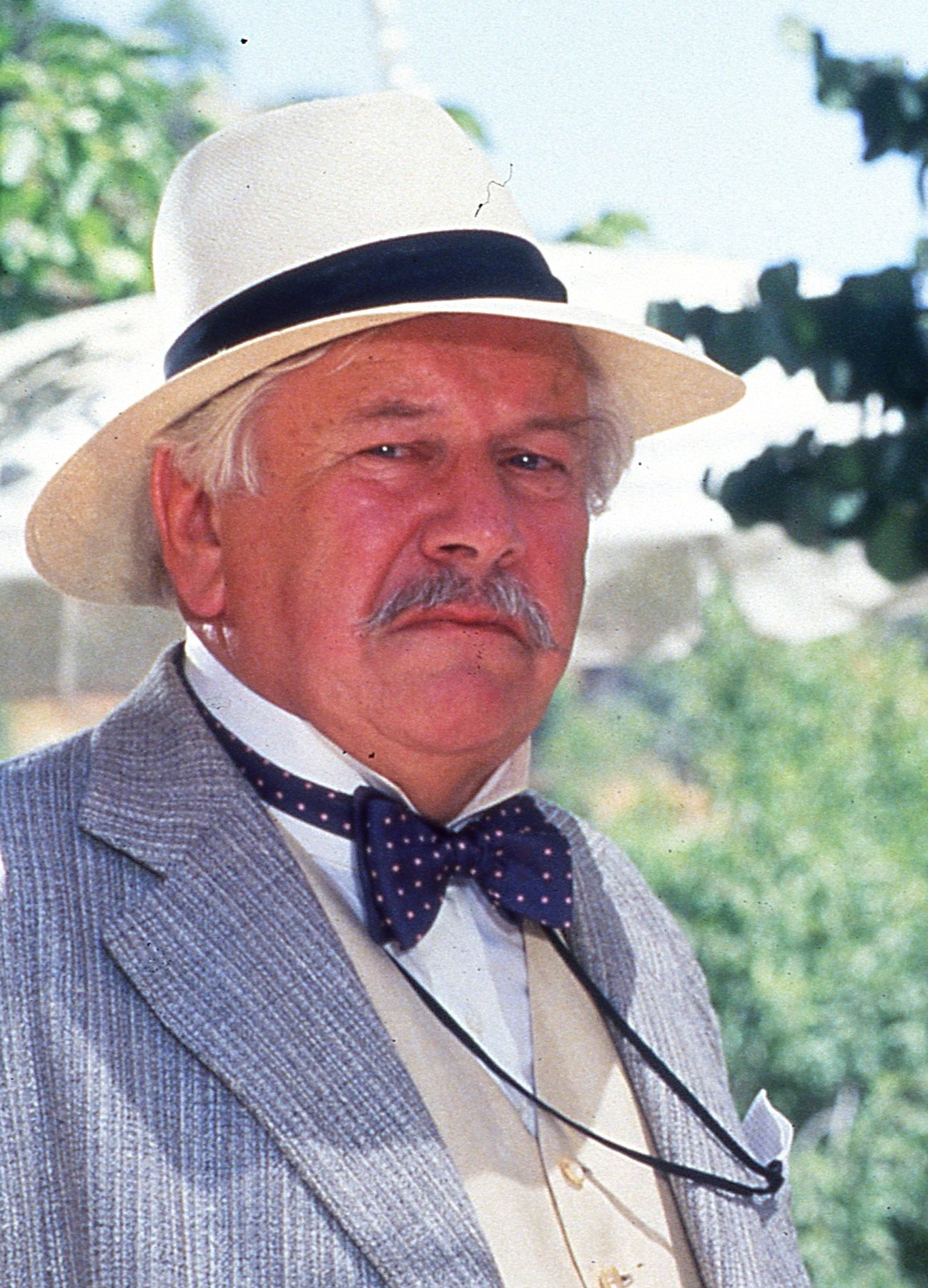Arte is streaming the Agatha Christie film Appointment with Death of 1988 with Peter Ustinov. Ustinov is my favourite Poirot so I watched it once more. Especially the endings are always so jolly with Ustinov. In Appointment with Death, when everyone, finally free from the evil stepmother, dashes off happily into marriage (Sarah marries Raymond; Carol marries Jefferson; and Ginevra marries Dr Gerard) Ustinov refers to the French author and intellectual André Gide: "I hope they realise, as André Gide did, that to free oneself is nothing. The really arduous task is to know what to do with one's freedom."
You can find another fun ending in Murder in Three Acts when Mr. Sattherwaite realises that it could have been him who ended up being killed by the poisoned cocktail randomly being handed out at the party. "I thought of an even worse thought." Ustinov/Poirot answers: "It could have been me."
Talking about cocktail parties, I myself have been tempted by cocktails lately, discovering the Melody Nelson bar in Berlin Mitte, named after the famous Serge Gainsbourg song (Jane Birkin cocktails are also on the menu). This morning I was reading a 1963 interview with Jean Cocteau in The Paris Review, which was recorded in Villa Santo Sospir at the Côte d'Azur. The villa is also known as the 'tattooed villa' because Cocteau decorated all the walls with his line drawings. The interview starts with a cocktail:
"Lunch was preceded by a cocktail, mixed by the famous hands, which Cocteau said he had learned to make from a novel by Peter Cheyney: 'white rum, curaçao, and some other things.' Lunch finished, the recorder was plugged in."
 |
| Villa Santo Sospir |
INTERVIEWER
Can you say something about inspiration?
COCTEAU
It is not inspiration; it is expiration. [The gaunt, fine hands on the thorax; evacuation of the chest; a great breathing out from himself]
Also, at several instances Cocteau tries to bring in Erik Satie but the interviewer doesn't take the bait and rather talks about Pablo Picasso. This is the early 60s when people knew about Satie because of Cocteau and not the other way around, as it seems to be now. Still, Cocteau manages to insert a few of Satie's subversive thoughts: "It was Satie who said ... the great thing is not to refuse the Legion of Honor—the great thing is not to have deserved it."
In an interview on Sotheby's, Igor Ustinov, the son of Peter, tells a nice anecdote about his father, also involving Picasso: "Once the director of my school said to him, you know, your son wants to be an artist, aren’t you worried? And he said, oh yes, I am worried, I was speaking the other day to the father of Picasso who was also very worried..."
But back to Cocteau, who has always been snubbed for his légèreté, jumping quickly from one medium to the other, and in the interview he admits to reading mainly detective fiction, espionage, science fiction:
INTERVIEWER
Do you recommend, then, to writers they read nothing serious at all?
COCTEAU [SHRUGS]
I myself do not.
Now, let us pick up again where we left behind at the beginning, which is André Gide being quoted in an Agatha Christie film. Gide actually was a huge fan of the Maigret books of Georges Simenon and called Simenon “a great novelist, the greatest perhaps and the truest novelist that we have in French literature today.” Simenon himself admitted he needed "the whip" of "a Gide" to continue writing. In German, there is a beautiful word for this phenomenon: Männerfreundschaften.
